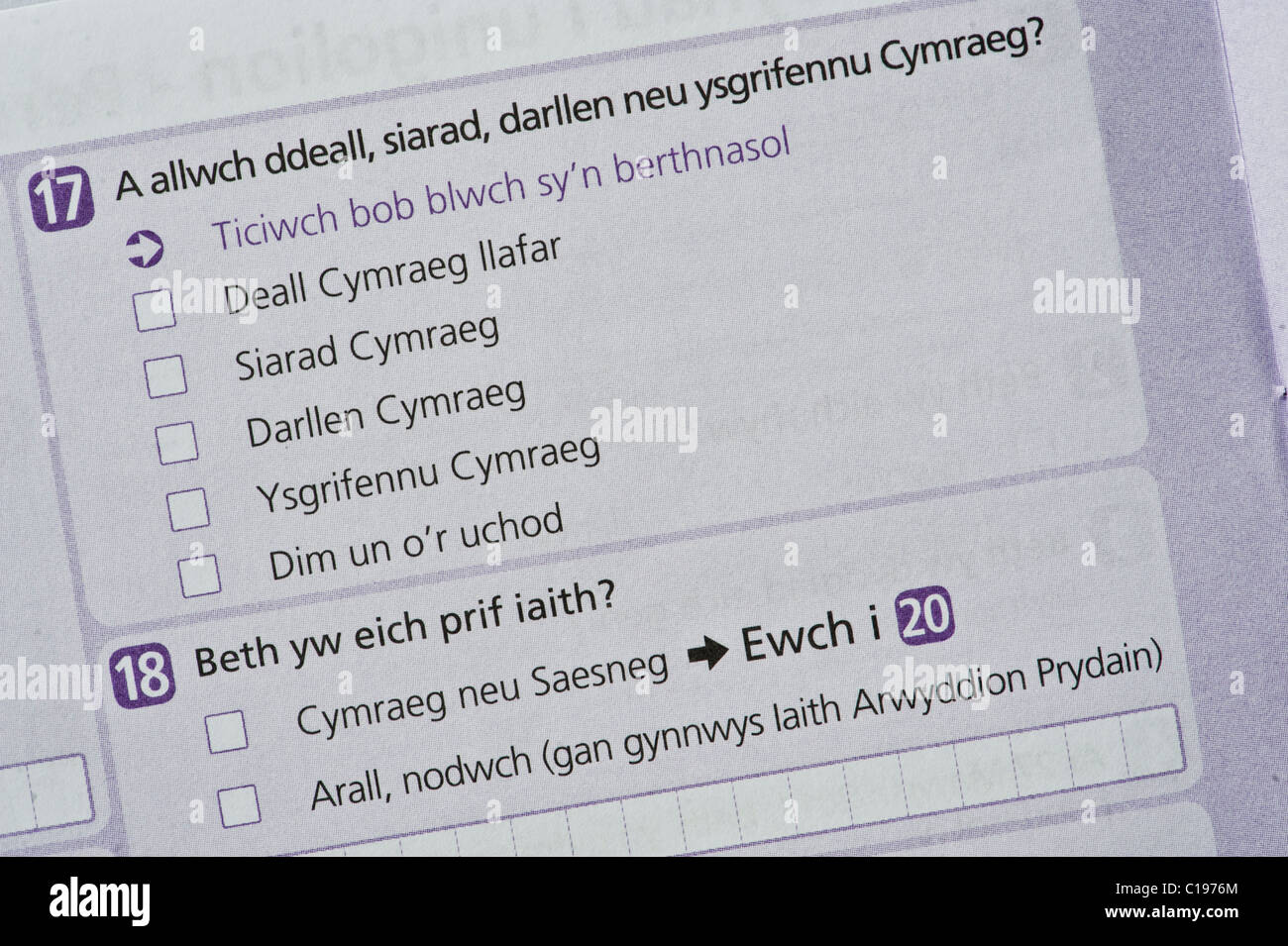The question asked in the Irish census is notoriously broad, at first merely asking whether a person speaks the language, before then asking how often they speak, with the predictable result that the estimates for speakers range between 77,000 and 1.4 million! Is the Welsh census more precise with such questions, say, asking whether people speak, read or write the language, and how fluent do people feel they need to be, before they would consider ticking the Yes boxes?
Cwestiwn diddorol! I am no longer in Wales to answer, but I suspect most learners think, “Oh, I can’t claim to speak the language, because I’m only learning!” I suspect it is not until they can talk to someone every day and naturally that they tick ‘Ie’ So I never would have!
Ooh, it did! Q20 then asks about your faith.
(Don’t ask me how anyone completing the form in Welsh is going to answer ‘Dim un o’r uchod’ to Q17…)
well I ticked none of the above, because I didn’t think honestly that my abilities were sufficient for yes in any of the other boxes. That means that I am now one of the many classsified as no skills in Welsh, which is and was also incorrect, but that wasn’t the box i ticked.
Next time around I’ll be yes for everything and honestly so.
I’m also a bit puzzled about the 1st answer to 18.
So you tick that if your first language is either Welsh, or English (apparently).
Is there a further question asking which is your first language?
(I thought that’s what 20 might be about, but you say it asks about faith Sara).
What is question 19?
Q19 was ‘How well can you speak English?’ If you are lucky enough to be a 1st language Welsh speaker then of course you don’t need to be able to speak English
Unless they tick “Darllen Cymraeg”, any other ticks will be unreliable  unless, of course, somone is reading the questions out to them.
unless, of course, somone is reading the questions out to them.
Interesting - it would seem then that, unlike here, very few tick the boxes for basically remembering stock phrases. The speaking, reading and writing categories seem most useful for gauging fluency, rather than abstract debates over whether a weekly speaker has the same “legitimacy” as a daily speaker!
That is the second tick box in Q. 18, I’d say
But only if it isn’t either Welsh or English, I think.
I don’t think so. The thing about Welsh is that the spoken language and the written language are different enough in their extreme forms for them almost to be different languages. And even if people can understand formal written Welsh, it’s not certain that they could also write it. So the questions kind of make sense. I’m not sure whether this will still be the case in 25 years time, though.
Yes, my interpretation is the same as Sionned’s.
I’ve found the form online here:
As far as I can see, they are not able to find out from the combined answers whether your first language is English or Welsh (only that it’s one of the two).
Question 19 asks about how well you speak English, but first language speakers of English or Welsh are supposed to skip that question.
Question 15 askes about “hunaniaeth genedlaethol” - national identity, and question 16 about ethnic group.
I think also, they would not identify anyone who considers themselves to be truly bilingual in English and Welsh.
I wonder why the questions are not framed something like:
List below the languages you speak, followed by level (1-3 where 1=native 2=fluent 3=learner)
(followed by numbered lines for people to fill in as required).
(Or something like that)
However, perhaps the slight clunkiness of the questions is because the language section has been bolted on to a translation of the English census, as a kind of afterthought?
Thanks Mike. There seems to be an implication/assumption that anyone in Wales who speaks Welsh is also a fluent English speaker, otherwise the questions are, as you said, slightly clunky.
I think the question is about how well official material can reach the populace, so only English and (in Wales) Welsh are the relevant languages for that. The census isn’t about what ‘other’ languages the populace can speak (I don’t say ‘foreign’ because of course a lot of them aren’t - there are apparently 11 indigenous languages within the UK).
The Welsh government also does its own research about how much, how well etc. people speak/read/write Welsh:
https://statswales.gov.wales/Catalogue/Welsh-Language
There was an interesting infographic about where people had learned their Welsh, but I can’t find it at the moment (annoyingly!) I’ll keep digging.
Aha! This is the one I was thinking of. It’s a bit basic, but quite interesting as far as it goes (it’s based on some of the stats from the link above):
http://dera.ioe.ac.uk/24821/3/151126-welsh-language-use-survey-2013-15-infographic-en.pdf
What’s interesting to me is that 43% of Welsh speakers learned Welsh in the home, and 51% in school. Which leaves 6% - which I presume must be those who learned as adults?
I’m not sure if it’s still true, but in past times, young people used to travel from Yr Wladfa (Patagonia) to Coleg Harlech to finish their education. They spoke Spanish and Welsh and very little, very basic English. Of course, this is not something most English Civil Servants consider.
Some people learning via SSiW would tick, “in the home” unless “on line” was an option! I guess the 6% attended evening classes or learned at Uni??
@mikeellwood You should suggest your questions to the 2021 census!
Yes, I don’t think anyone in Wales would tick the boxes, simply because they knew a few phrases - because almost everyone would know a few phrases.
